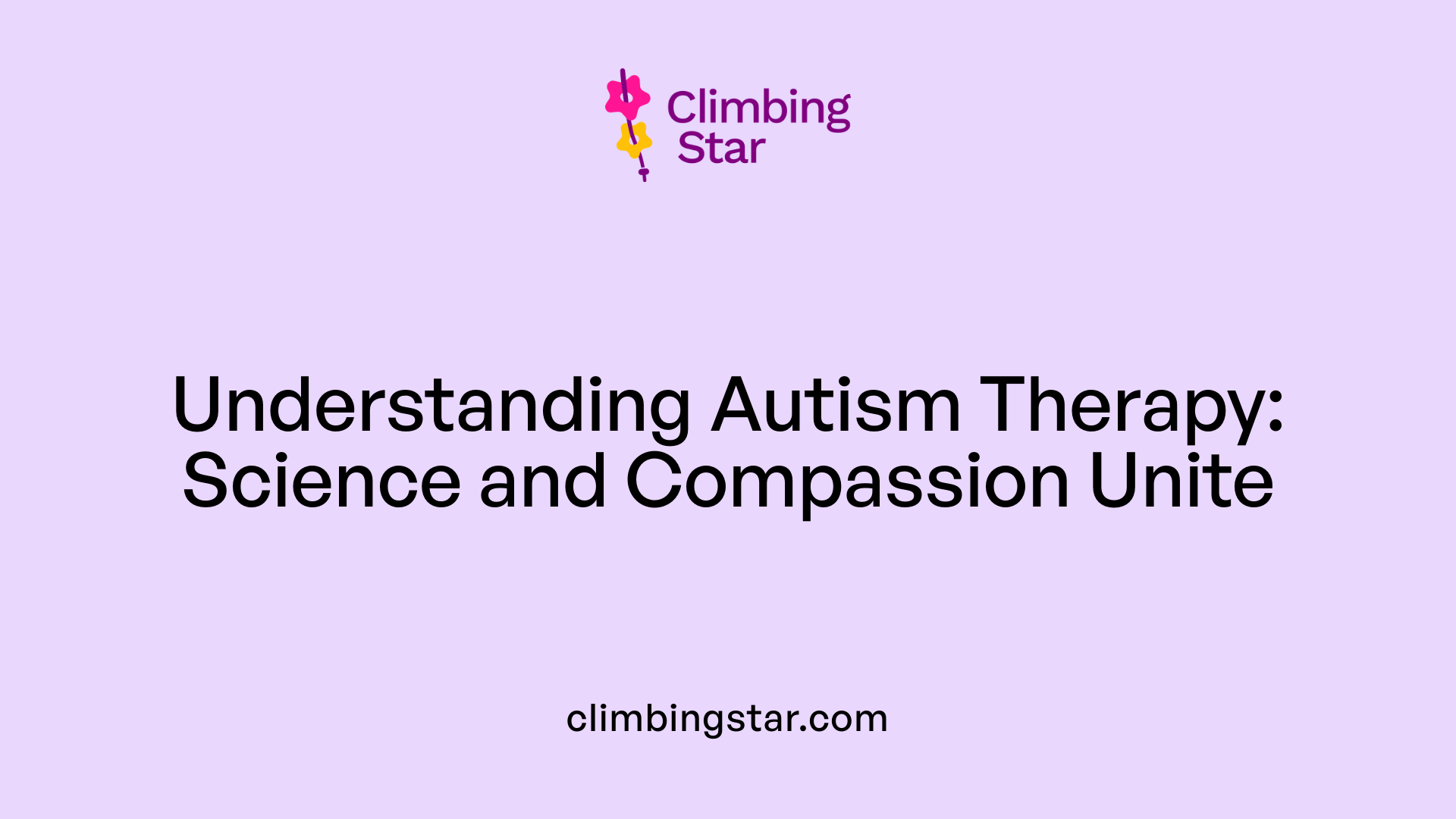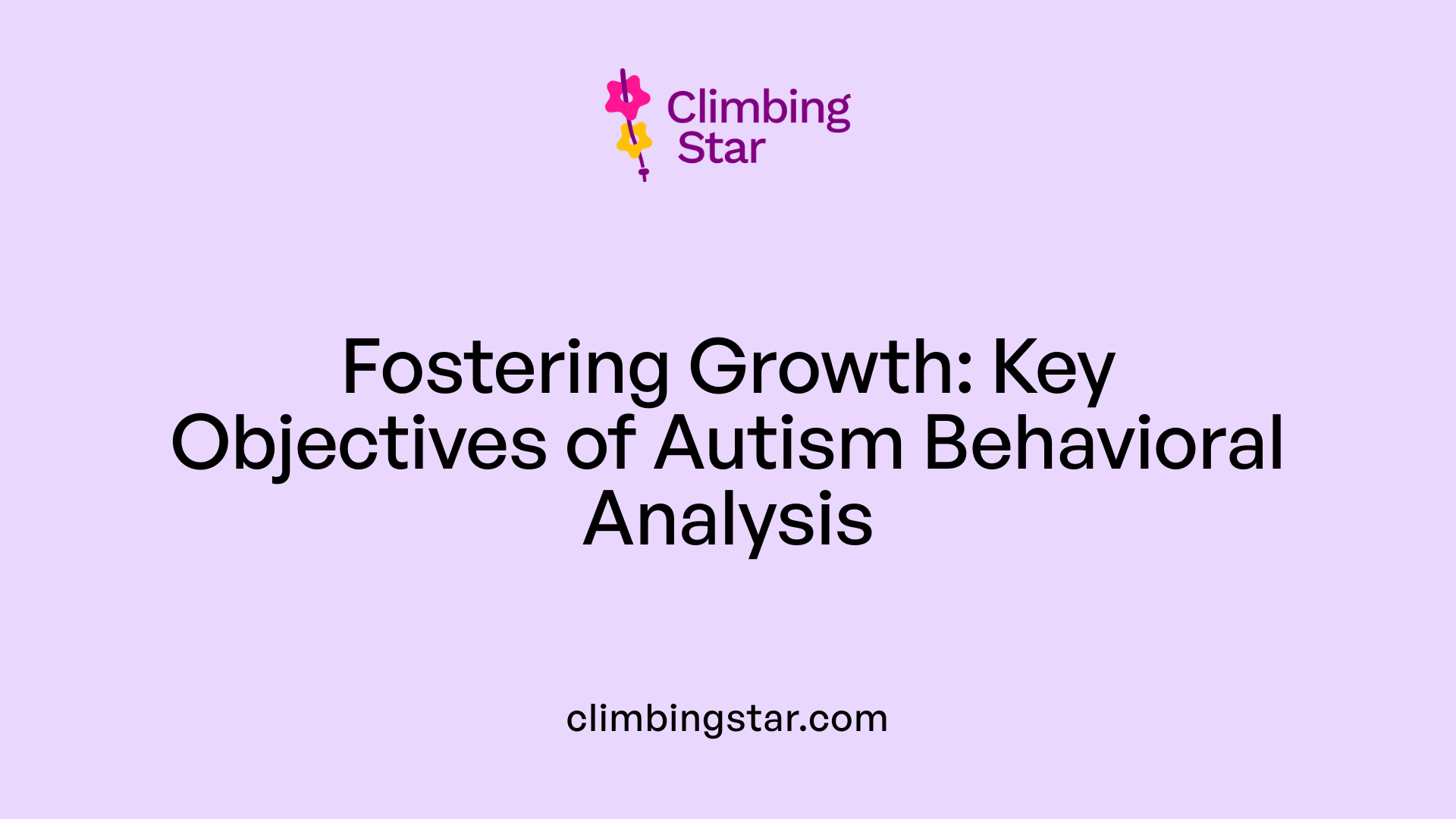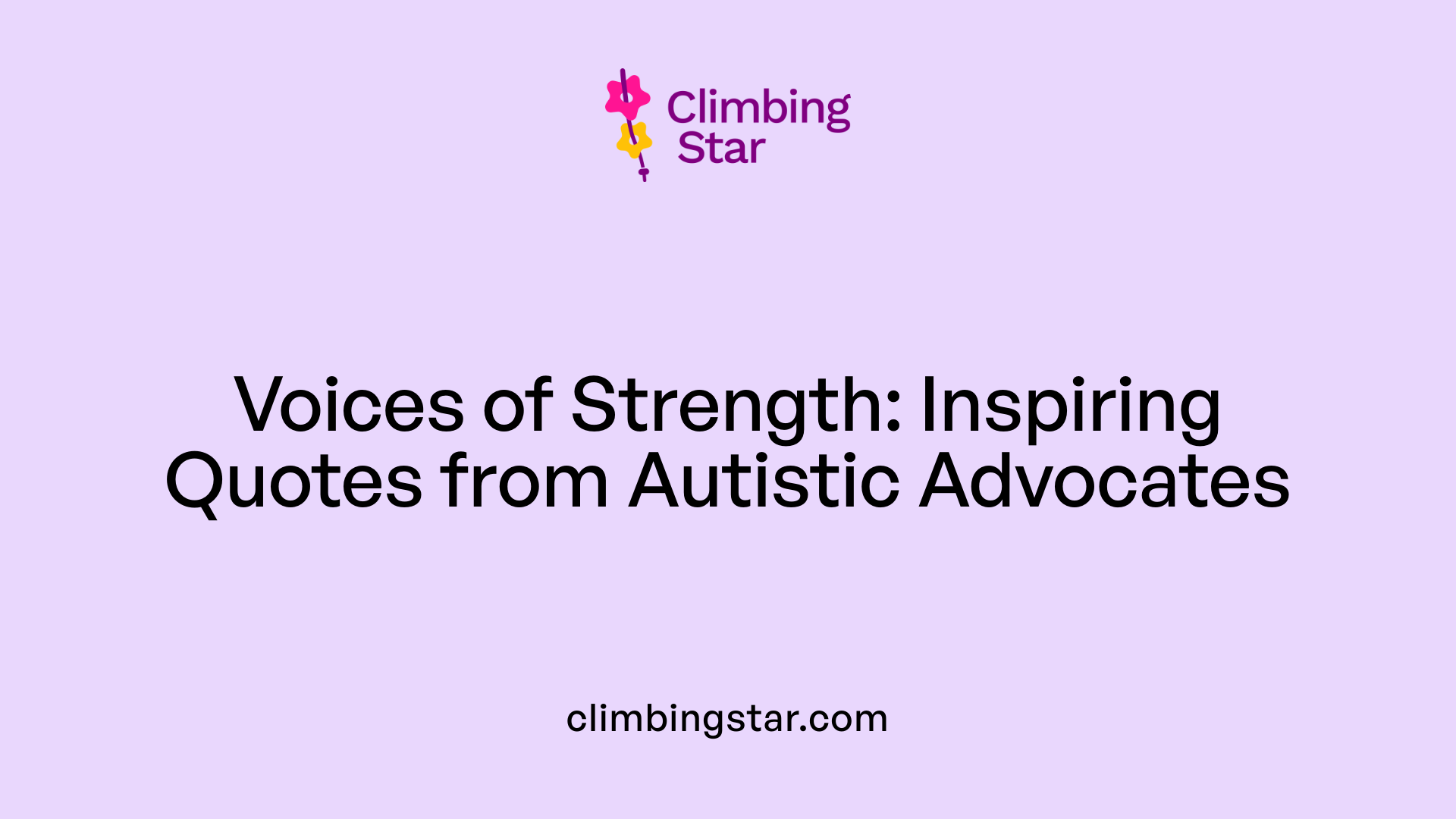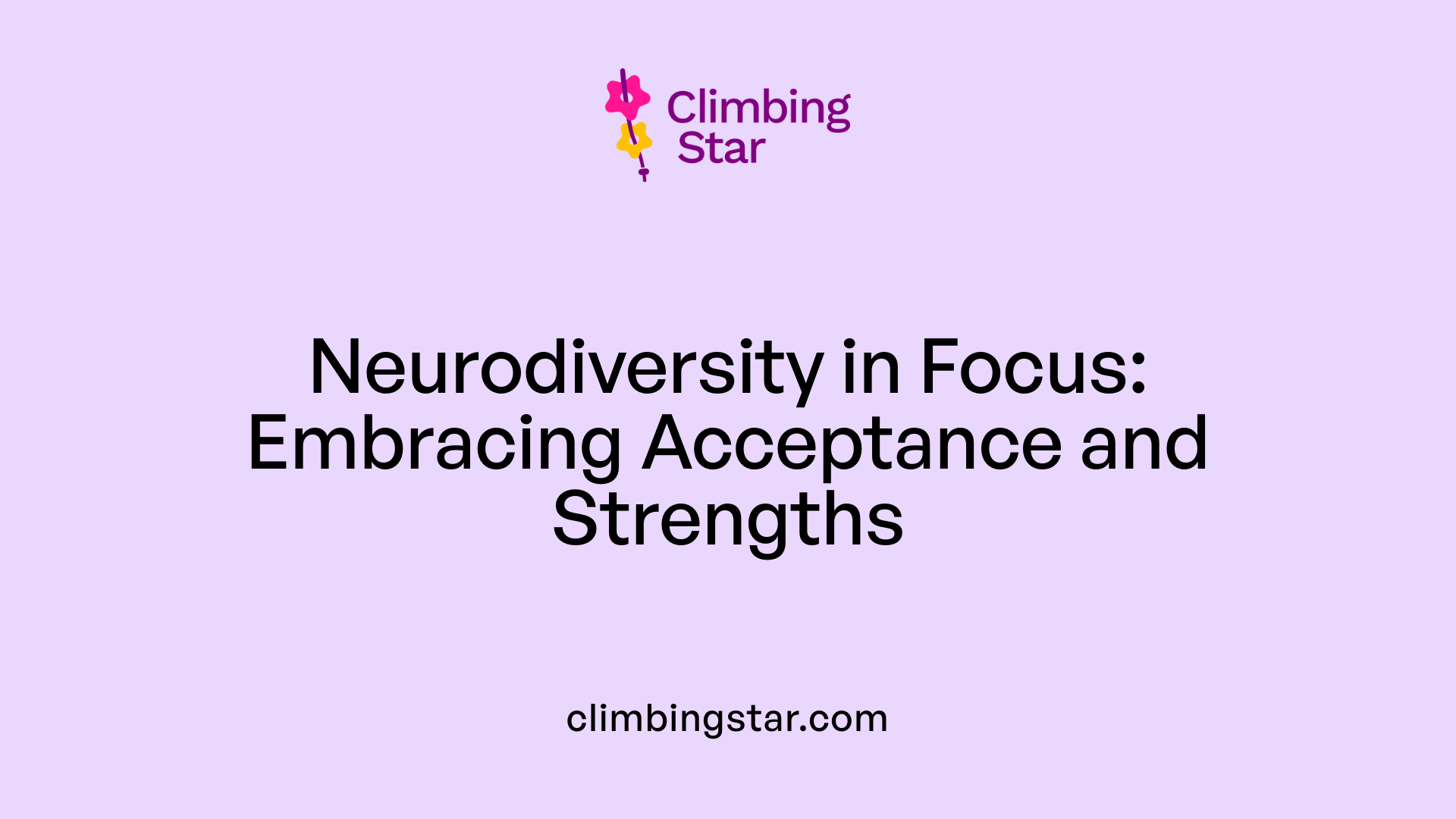Embracing Autism Through Words and Understanding
Autism spectrum disorder (ASD) presents unique challenges and strengths that shape the lives of those diagnosed. Across the globe, individuals with autism and experts in the field share powerful quotes that highlight resilience, self-identity, and positive outlooks. These voices not only inspire but also deepen our understanding of autism and its therapeutic approaches, particularly those rooted in behavioral analysis. This article explores the insights of autistic advocates alongside foundational knowledge of autism therapy, shedding light on a path toward acceptance, growth, and empowerment.
Understanding Autism Therapy and Behavioral Analysis

What is autism therapy and how does it utilize behavioral analysis?
Autism therapy includes a variety of methods to help individuals with autism spectrum disorder (ASD) develop essential social, communication, and behavioral skills. One of the most widely recognized and evidence-based approaches is Applied Behavior Analysis (ABA).
Definition of autism therapy
Autism therapy aims to support people on the autism spectrum by addressing specific challenges such as social interactions, language development, and repetitive behaviors. It focuses on enhancing strengths and reducing barriers to independence and quality of life.
Applied Behavior Analysis (ABA) principles
ABA is rooted in behavioral science, studying how environmental factors influence behavior. It uses data-driven strategies to increase positive behaviors while decreasing those that are harmful or interfere with learning.
Techniques used in ABA
ABA employs a range of techniques tailored to the individual's needs, such as:
- Positive reinforcement: rewarding desirable behaviors to encourage repetition
- Prompting: providing cues to guide correct responses
- Shaping: gradually molding complex behaviors by reinforcing successive steps
- Behavior management: strategies to reduce undesirable behaviors Common programs include discrete trial training, pivotal response training, and the Early Start Denver Model.
Personalization of treatment plans
Each ABA program is personalized after thorough assessments that consider the individual's unique strengths and challenges. This customization ensures that therapy addresses specific goals effectively and adapts as progress is made.
Role of professionals in ABA therapy
Qualified professionals such as Board Certified Behavior Analysts (BCBAs) oversee ABA interventions. They design, implement, and continuously monitor treatment plans using data collected from sessions to make well-informed adjustments.
In summary, autism therapy through ABA combines scientific analysis of behavior with compassionate, individualized care to support people with autism in leading fuller, more fulfilling lives.
Who Provides Autism Therapy Focused on Behavioral Analysis?

Who typically provides autism therapy focused on behavioral analysis?
Autism therapy centered on Applied Behavior Analysis (ABA) is usually administered by professionals specifically trained in ABA techniques. These include Board Certified Behavior Analysts (BCBAs) and Registered Behavior Technicians (RBTs). Such providers undergo rigorous education and certification processes governed by recognized boards like the Behavior Analyst Certification Board (BACB).
Specialized organizations providing services
ABA therapy services are often delivered through specialized organizations dedicated to autism support. For instance, organizations like Achieve Beyond cater to children on the autism spectrum nationwide, offering tailored ABA programs designed to encourage skill development.
Settings where ABA is applied
ABA therapy occurs in diverse settings to maximize effectiveness and comfort. Common locations include the client's home, schools, and community environments, allowing therapy to be integrated naturally into daily routines and supported by different caregivers.
Training and certification of providers
Providers hold certifications such as BCBA or RBT, requiring stringent training in behavioral analysis principles, ethics, and application. Their expertise ensures that interventions are evidence-based, utilizing strategies like positive reinforcement and behavior shaping customized for individual needs.
Collaboration with families and caregivers
A key part of ABA therapy is the collaborative partnership between providers and families. Therapists work closely with parents and caregivers to share progress, educate on techniques, and help generalize new skills across settings.
Together, these factors create a comprehensive, personalized approach that supports positive developmental outcomes for autistic individuals through behavioral analysis.
The Core Goals of Behavioral Analysis in Autism Therapy

What are the common goals of autism therapy using behavioral analysis?
Applied Behavior Analysis (ABA) therapy for autism centers on several crucial objectives designed to support individuals on the spectrum. One primary goal is the improvement of communication and social skills. This means helping individuals better express themselves and interact more effectively with others, facilitating personal connections and inclusion.
Another important target is the increase of adaptive behaviors. These are practical skills that promote independence and ease daily living, such as following instructions, adapting to changes, and engaging positively in various environments.
ABA also focuses on the reduction of problematic behaviors. By analyzing the relationship between behaviors and their environments, therapists work to decrease actions that may be harmful or interfere with learning, using gentle and positive reinforcement techniques.
Development of self-care and daily living skills is a fundamental aim as well. Learning how to manage personal hygiene, dressing, eating, and household tasks empowers individuals to live more independently and confidently.
Lastly, enhancing emotional and social engagement is emphasized. Building skills to understand emotions, respond appropriately, and participate socially improves overall quality of life and helps individuals navigate complex social settings with greater ease.
In summary, the goals of ABA therapy in autism are to foster meaningful progress across communication, social interaction, behavior management, self-sufficiency, and emotional understanding. Each aim is carefully personalized to suit individual needs, ensuring therapy is both effective and supportive of the person’s unique strengths and challenges.
Inspirational Quotes from Autistic Advocates and Experts

Quotes Emphasizing Resilience and Self-Identity
Autistic individuals share powerful affirmations about resilience and self-identity. Amy Gravino highlights the inner strength required to face challenges like bullying, emphasizing mental health importance. Kerry Magro insists that autism does not define a person, encouraging self-acceptance and personal identity beyond the diagnosis.
Perspectives on Acceptance and Empowerment
Acceptance remains central in the conversations of advocates. Scott Lentine calls for authenticity and acceptance, advocating for self-expression without stigma. Anthony Ianni reminds us to live life fully and dream, underlining empowerment despite challenges.
Positive Outlooks on Autism and Personal Growth
Erin McKinney encourages recognizing beauty amid difficulties, promoting a positive mindset. Rachel Barcellona sees autism as an opportunity for victory rather than limitation. Dani Bowman inspires belief in possibilities, fueling motivation and progress. Haley Moss highlights patience by acknowledging individual developmental timelines and celebrating small wins.
Insights from Temple Grandin and Stephen Shore
Temple Grandin stresses the importance of exposure to diverse experiences for effective development, aligning with autism support therapies. Stephen Shore emphasizes the individuality of each autistic person, advocating personalized understanding rather than a one-size-fits-all approach.
Themes of Patience, Authenticity, and Motivation
Across various voices, themes of patience, authenticity, and motivation resonate deeply. They encourage embracing uniqueness, allowing time for personal growth, and sustaining hopeful, forward-looking perspectives that empower autistic people and their communities alike.
Embracing Neurodiversity: Acceptance Beyond Therapy

What is the concept of neurodiversity?
Neurodiversity celebrates the natural variation in human brains, recognizing conditions like autism not as deficits but as part of a broad spectrum of differences. This viewpoint encourages society to value and respect neurological diversity just as we do for biodiversity in nature.
Why is celebrating natural variation vital?
Acknowledging diverse brain function fosters empathy and inclusion for autistic individuals. It helps dismantle stigma by highlighting individual strengths and unique perspectives instead of focusing solely on challenges.
How does acceptance and accommodation matter?
Acceptance goes beyond tolerance, inviting society to actively support and adapt environments for autistic people’s needs. Accommodations in education, workplaces, and communities enable fuller participation and empower individuals to thrive authentically.
What inspiring quotes support neurodiversity and positivity?
Visionary advocates emphasize positivity and self-worth within the autism community:
- Temple Grandin highlights the importance of diverse experiences for growth.
- Stephen Shore stresses personalized understanding of each autistic person.
- Kerry Magro and Amy Gravino focus on self-identity, resilience, and mental health.
- Erin McKinney and Rachel Barcellona promote finding beauty and victory through challenges.
- Anthony Ianni and Dani Bowman encourage living fully and believing in possibilities. These testimonials reinforce a message of empowerment and hope.
How does therapy link with broader societal understanding?
Approaches like Applied Behavior Analysis (ABA) are tailored to individuals but also benefit from a neurodiversity perspective. Effective therapy supports skills development while respecting identity, contributing to social acceptance and improved quality of life.
Emphasizing acceptance and accommodation alongside professional therapy creates a comprehensive framework that respects autistic individuals’ dignity and promotes their well-being in society.
Looking Forward: The Power of Words and Therapy
The voices of autistic individuals and experts resonate with themes of resilience, hope, and pride. Through the lens of behavioral analysis and autism therapy, these messages gain practical significance, guiding personalized, evidence-based interventions to foster growth and independence. As society embraces neurodiversity and the unique strengths of all individuals, quotes and perspectives become more than inspiring words — they serve as catalysts for acceptance, empowerment, and meaningful progress in the lives of those on the autism spectrum.
References
- 10 inspiring quotes from people with autism
- Inspirational ABA and Autism Quotes
- 10 Autism Quotes For Special Needs Parents
- Applied Behavior Analysis (ABA)
- Applied Behavior Analysis (ABA)
- Behavioral Therapy for Autism Spectrum Disorder in Children
- Treatment and Intervention for Autism Spectrum Disorder
- Behavioral Management Therapy for Autism | NICHD
- Applied Behavior Analysis (ABA)
- ABA Therapy Goals: 25 Practical Examples & Timelines






